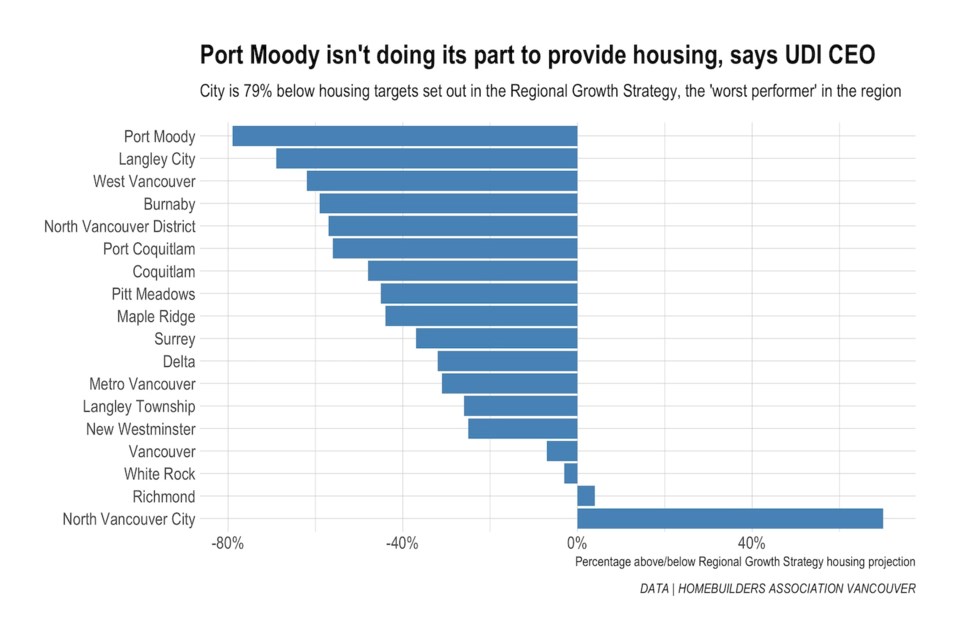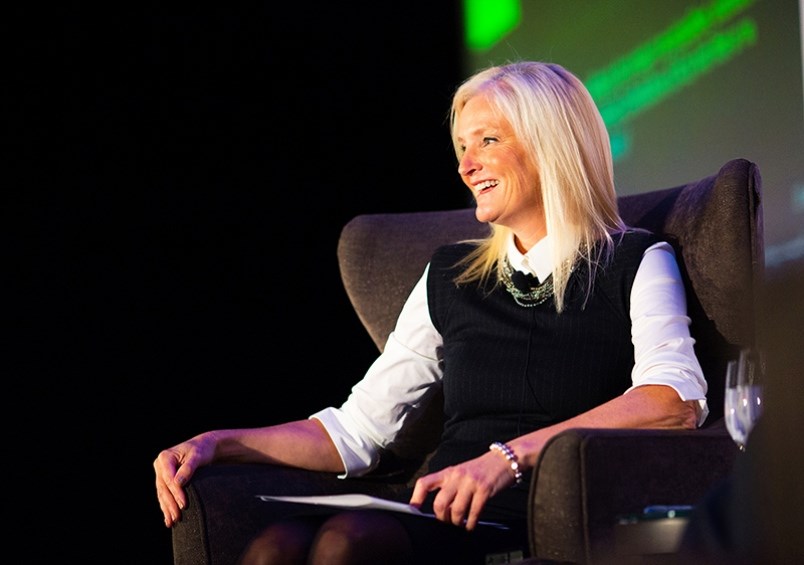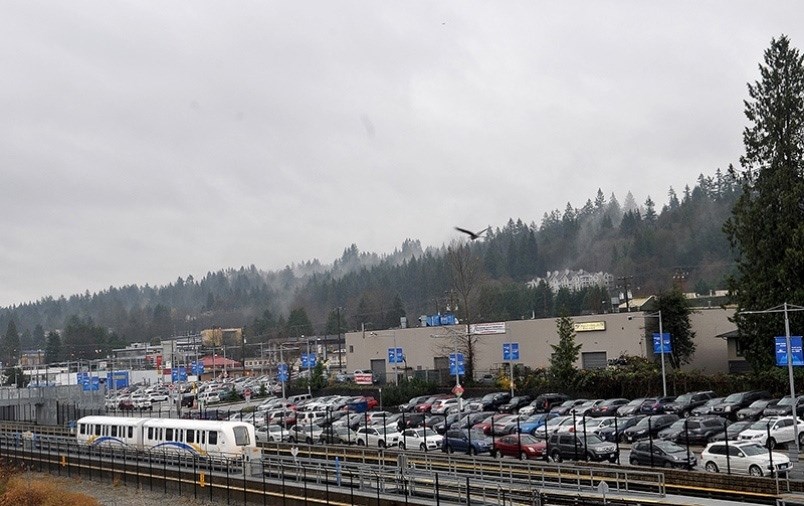Port Moody is lagging far behind its Metro Vancouver neighbours when it comes to keeping up with housing demand, according to a development industry representative.
Anne McMullin, president and CEO of the Urban Development Institute, said the city is 79% below the projected residential unit targets set out in Metro Vancouver's Regional Growth Strategy, the "worst performer" in the region.
"They are not living up to the commitments they made," she told The Tri-City News this week.
"These targets are not set out by the industry or the provincial government. These targets are set out by the municipalities themselves. It is in their own regional growth strategy."

McMullin acknowledged that only two municipalities — the city of North Vancouver and Richmond — have met or exceeded the targets but said most cities are laying the groundwork to meet housing demand.
Coquitlam, for example, is 48% below its Metro projection but is currently planning to add a significant number of units around SkyTrain in the City Centre and Burquitlam areas, she said.
The current Port Moody council has been resistant to new development, she said, which is disappointing given the amount of money higher levels of government spent to bring rapid transit to the city.
As federal and provincial taxpayers, McMullin said, we all pay for SkyTrain construction and it's not fair that municipalities can then make it difficult to allow the growth needed to get the most out of the infrastructure investments.
According to data released by the provincial government earlier this month, Port Moody's population has held steady and even slightly decreased over the last five years.

The numbers are in sharp contrast to some of the campaign rhetoric in the most recent civic election, where some candidates and voters expressed concern over the rate of residential development in the city.
Port Moody Mayor Rob Vagramov told The Tri-City News last week that fears of out-of-control growth are not necessarily about what is being built now but what is planned for the future.
"The stuff that is being built today or just got built last year has already been decided," he said. "When they talk about population issues, they are talking about the future."
He pointed to plans for the Moody Centre area, where council is currently debating allowing development that would result in population growth of between 8,000 and 11,000 residents over time.
Vagramov also pushed back on accusations that Port Moody is not living up to the targets set out in the Regional Growth Strategy.

"I've heard this out there before, that cities have to pull their weight or whatever," he said last week. "I hear that largely from developers. I hear that largely from developer lobby groups, like [the Urban Development Institute]. I don't hear that from average people."
McMullin took issue with the mayor's comments, saying if Port Moody is going to limit the amount of new housing built in the municipality, it will only serve to drive up residential real estate prices. It will also mean that neighbouring communities will have to shoulder more of the regional population increases that are expected in the coming decades.
"If one municipality doesn't take up what their commitment is, then it is going to have to go somewhere else," she said, later adding: "When the mayor says I have heard those criticism, those aren't criticism from UDI — those are the facts."


